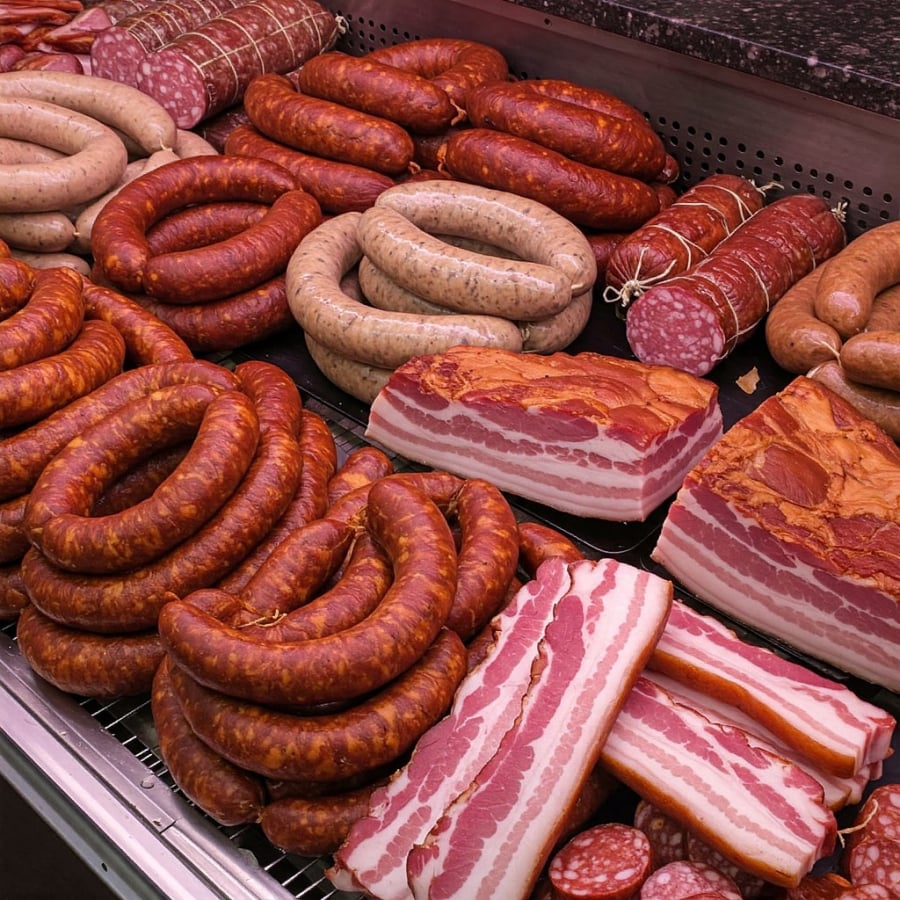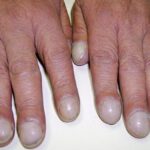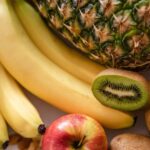Stroke often occurs when there is a sudden blockage in the brain’s blood vessels. This results in brain cells not receiving oxygen and nutrients, leading to their gradual death and a decline in neurological function. Initial signs of a stroke include facial asymmetry, slurred speech, and paralysis on one side of the body. Without timely medical intervention, the consequences can be severe, even life-threatening.
There are various causes of stroke, one of which is an unhealthy diet. Consuming foods that are detrimental to health increases the risk of blood vessel blockage and can lead to dangerous complications.
Foods That Increase the Risk of Stroke
Diet has a significant impact on health and can either increase or decrease the likelihood of a stroke. Interestingly, four types of commonly enjoyed foods can heighten the risk of experiencing a stroke.
– Processed meats (sausages, cold cuts, smoked fish, salami, etc.)
– Deep-fried foods
– Cookies, cakes, and sugary soft drinks
– Butter
These foods contribute to the buildup of fat in the body, which, over time, can lead to the development of atherosclerotic plaques in the arteries. This process compromises blood flow to the brain, increasing the risk of insufficient blood supply. Foods high in salt and fat content are significant contributors to atherosclerosis and, consequently, stroke.
Additionally, a high salt intake is associated with an increased risk of chronic illnesses and stroke. While salt is essential in the diet, excessive consumption leads to high blood pressure, a critical factor in stroke development.

Salt causes the body to retain more water, which, in turn, raises blood pressure. This excess water creates pressure on the arterial walls, leading to hypertension. High blood pressure can cause blood vessels to become blocked or ruptured, both of which result in a lack of blood flow to the brain and trigger a stroke.
Processed foods often contain high levels of salt, and deep-fried foods, such as crispy french fries, are also surprisingly salty, despite their popularity.
Meanwhile, foods high in sugar, like cakes and soft drinks, contribute to weight gain, obesity, and type 2 diabetes. These conditions can cause arterial damage and inflammation, affecting blood flow to the brain.
Foods That Help Lower the Risk of Stroke
- Fruits and Vegetables
Fresh fruits and vegetables are excellent sources of fiber, vitamins, minerals, and antioxidants, which are essential for the body. These nutrients help prevent arterial damage, and fiber, in particular, reduces blood fat levels by binding to cholesterol in the intestine, thus preventing cholesterol buildup in the body and inhibiting the formation of arterial plaques. Incorporating these foods into your daily diet can lower your stroke risk by 10%.
- Healthy Fats
While the body requires fat to function, it is crucial to select the right types of fat for your diet. Opt for foods containing high levels of monounsaturated and polyunsaturated fats, found in beans, olive oil, and nuts, among other sources. Including these healthy fats in your diet helps reduce bad cholesterol levels and prevents blood vessel blockages.
In conclusion, it is essential to be mindful of your daily diet to maintain your health and longevity. The foods mentioned above should be consumed in moderation or avoided to lower your risk of stroke.





































